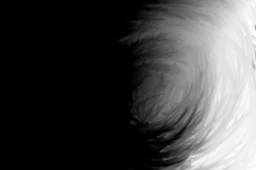What Anne Lamott Told Me About My Story
- June 13, 2017
- by
- Rachel Dawson
Anne Lamott answered a question of mine today. No, literally. TED hosted a Facebook live video with the author, and encouraged viewers to comment with their questions for her. I, loving Lamott and all of her writing, jumped at this. “In your memoirs,” I asked, “how do you balance telling YOUR story with honoring the stories of others and protecting their own privacy when they intersect and overlap with yours?”
I didn’t expect she’d really answer it, as the host and Lamott kept chatting, BUT THEN SHE DID. The host read my name aloud and posed my question (about the 8:20 mark), and Lamott started talking while I freaked out. She knew my name! She saw my picture! She heard my question! She is literally answering my question right now for thousands of people, including me!
Crazy.
I’ve never been much of a fangirl, but I guess we know now what gets me excited…
Anyway. What Lamott had to say in response to my question was powerful.
“You own everything that has happened to you,” she said. “If people wanted you to write better about them, they should have behaved better.”
That’s the real deal, right there.
You see, I asked this question because it’s one I’ve been wrestling with a lot lately. I’m a writer, a blogger, a designer. I have accounts on all the social media sites, and even though I’m not some Instagram celebrity, I do have followers. I do, I’ve come to realize, have a platform, however small. I know I have a story, and I have a deep conviction that I should use whatever platform I have to tell that story… but it’s hard to figure out just how best to do that.
The challenge feels two-fold, really.
First, I have to give my own story words, and I have to speak them. When there are major events in your life that turn into key moments in your story, they often come with many emotions. There are things in my story that are deeply painful, or that carry a lot of shame, or that I’d rather not relive. Those things, though, are the parts of my story where the really good stuff happened– true healing, restoration, awakening, and growth. I can’t just leave the hard or messy parts of my story out– I need to be honest and real about them just like I am about the beautiful and easy parts. (This isn’t to say every single thing about your story should be broadcast to the world. I just firmly believe we shouldn’t only share the highlight reels.)
The second part, and the part I’m finding to be most challenging right now, is how to tell my story when it involves the stories of others. I want to talk about the hard high school years where I was bullied by a group of girls from youth group, but I don’t want to bash them when I do. I know I can leave their names out, and I can hold back personal information that might identify them, and I even doubt that any of them would read anything I wrote about them… but it still doesn’t sit quite right with me. I don’t want to hurt them, slander them, or even pigeonhole them through my story, but at the same time, they did hurtful things that impacted me forever. How do I tell of those things, of my story, the parts that include them, without damaging them in some way? Or how do I tell about the ongoing things in my story that involve people even closer to me, like my family members, my coworkers, my friends? Is there a certain length of time that should go by before it’s acceptable to share stories about people that are closer to me? Should I ever? Should I always keep those parts of my story private? Won’t people be able to connect the dots even if I change names or remove details?
This is where telling our stories gets tricky.
It’s hard enough to muster up the courage and bravery to put our stories out there for the world to see, no matter what medium we use to do so. It takes serious guts to give a voice to the things you’ve experienced, good or bad. I believe it’s beautiful and necessary that we do so, though, so this battle of figuring out how to share my story (and consequently, the stories of others) feels important to work out.
I don’t claim to have all the answers when it comes to respectful, people-honoring storytelling, but I do have a couple of thoughts that might be helpful to keep in mind when it comes to sharing.
When you’re thinking of sharing some part of your story publicly, first consider:
- Whose story is this? Is it really mine, or does it belong to someone else?
- If this story is truly mine, what is my motivation for sharing? Am I doing so out of selfish reasons? If so, maybe it’s best to keep it private. Am I doing so to encourage others, to share what God is doing in my life, or to share something I’ve learned? If so, keep an edifying tone in mind, and be careful to not come across harshly or preachy.
- If this story involves others, how will they feel if I make this public? Will it have long-lasting impact or cause potential damage? Am I being respectful in the way I speak about others? Have I asked them for permission to talk about this or make art with this or share it with others?
- What is the best way for me to share this story? Is it truly in a public way? Is this platform the best, or might there be another space where it would make more sense to share?
- When is the best time for me to share this story? If things are raw and recent, it might be best to let time go by before talking about it. Try to avoid those feelings of “too soon” if you can.
- What is my ultimate goal in sharing this part of my story? Try to imagine telling this story, perceiving how people might respond, and thinking about how you’ll feel once it’s told, both immediately after and a while down the road. Do all of those things make you feel confident in sharing? If you have any reservations, it might be best to sit on it for a bit longer.
While you do absolutely own everything that has happened to you, like Lamott says, sharing our stories can be a messy, nuanced, challenging thing.
Later in her interview, Lamott said this, and I found it so true: “When you write, you’re giving the world your deepest, most soulful heart truth.” That should be something we take seriously. So, be brave in telling your story, friends, but be honoring of others, too. We all are in the middle of the stories our lives are writing, and we should do our best to handle them well.






